Canadian Healthcare System
Canadian health care system is simpler to understand than the US model in many ways, as well as other systems around the world. While it is largely paid for publicly, it is delivered privately, and Canadians are empowered to choose any health care provider they like, and the government will reimburse that practitioner with an agreed-upon fee for service.
No, Canada’s health care system is not perfect. There are problems, ranging from long wait times to the gender gap. However, when compared with most other nations, Canada’s system ranks very well. How does Canadian health care work? It’s a single-payer system, with most funds coming from the federal government. However, charitable contributions and even private insurance have roles to play, as well.
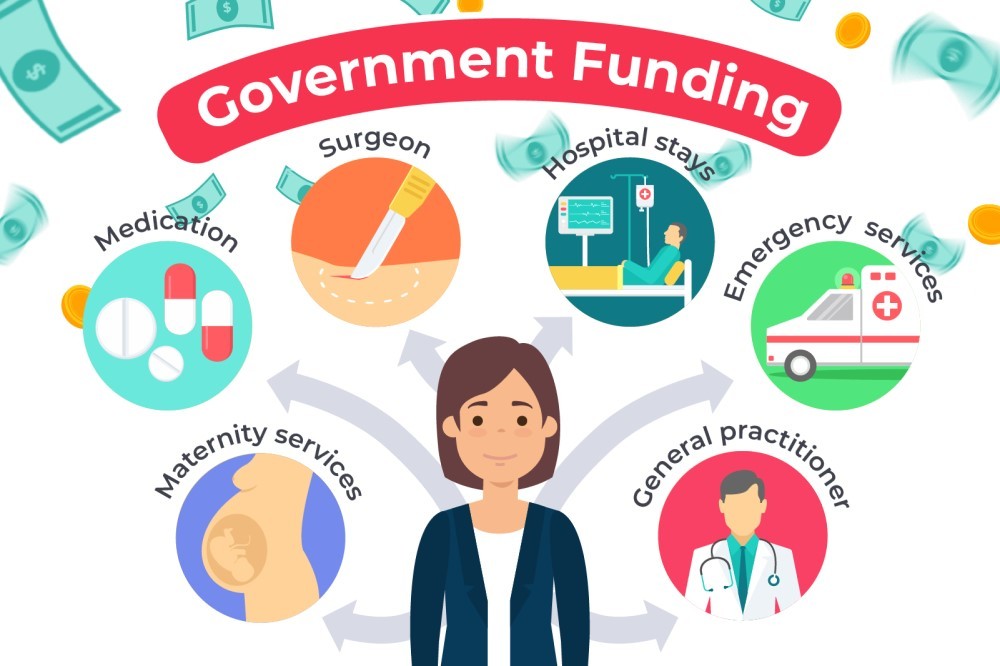
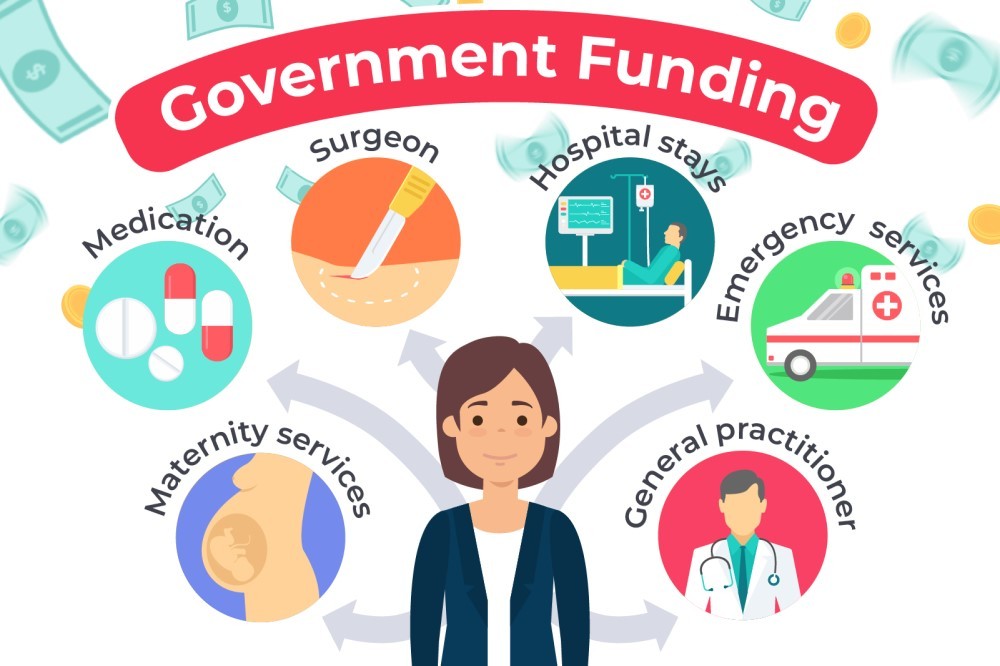
Where Does the Money Come from for Healthcare in Canada?
Most of the money that flows through Canada’s health care system comes from federal taxes. The federal government makes this money available to provinces and territories, who then use it to fund their own programs (local Medicare programs). However, not all of the money in the Canadian healthcare system comes from taxation. Charitable contributions play a big role, particularly in helping to fund new hospital programs. Private insurance is also necessary because Canada’s Medicare does not cover everything.
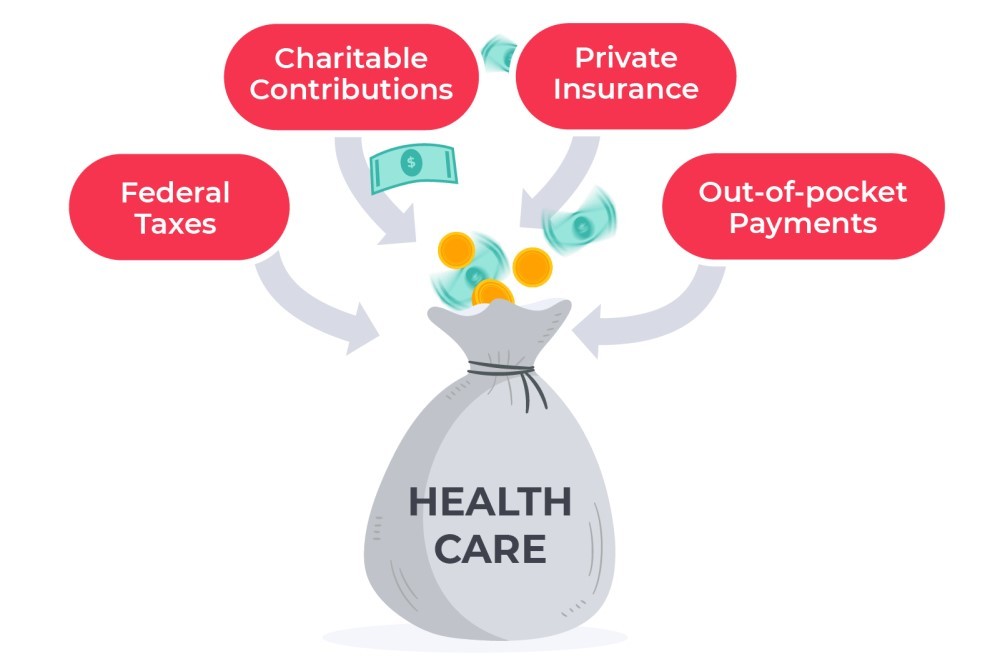
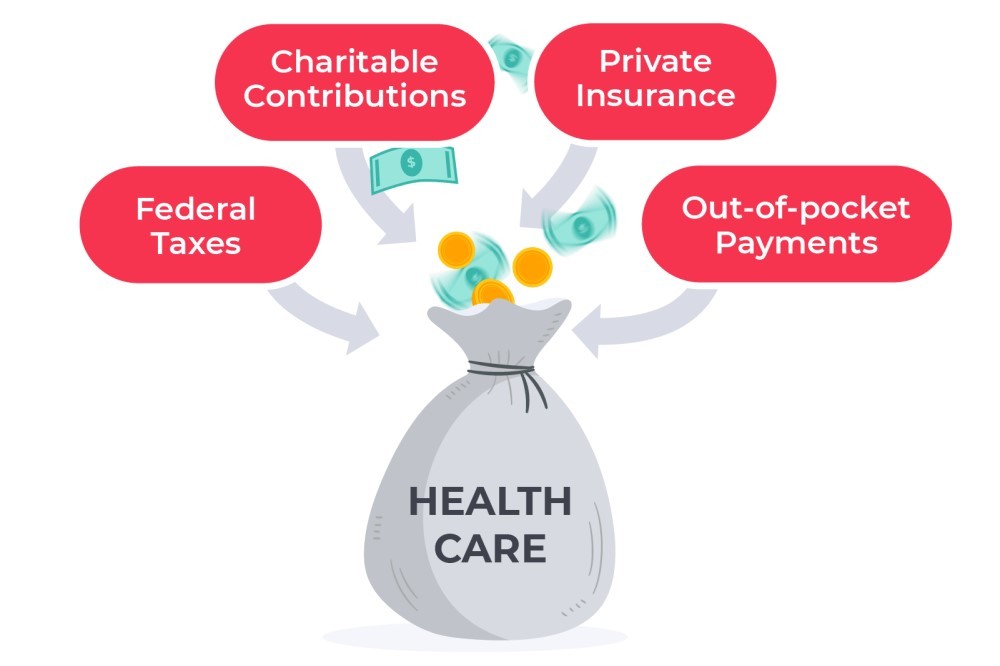
Canadian Healthcare is mostly funded by federal taxes.
Ultimately, Canadian health care is not the “socialist” program that many Americans have made it out to be. Insurance is still present and necessary. It is simply paid for in ways unfamiliar to those who have never been part of the system. A public plan (Medicare) ensures that medical professionals are paid and that Canadians have access to vital care.
Another myth is that there is a single, overarching national plan. That is not true. There are actually 13 different plans, one for each province or territory. The point of Canada’s health care system is to ensure that everyone, no matter where they might be located or what their background might be, has access to medical care when they need it.
What Role Does the Federal Government Play in the Canadian Health Care System?
At first glance, it might seem that the federal government is really only responsible for providing the provinces and territories with Medicare funding. However, that is actually not the case. The federal government has four responsibilities here. These include the following:
- Setting and maintaining standards of care for the Canadian health care
- Serving health-related functions, such as regulating pharmaceuticals and chemicals.
- Ensuring First Nations and other groups receive access to health care.
- Providing funding for territories and provinces.
The Canadian government also cares about those people who suffer from various kinds of mental health problems, including gambling addiction and provides funding for Gambling Addiction Centers for fighting with this widespread disease. Such help centers are located in almost every province in Canada.
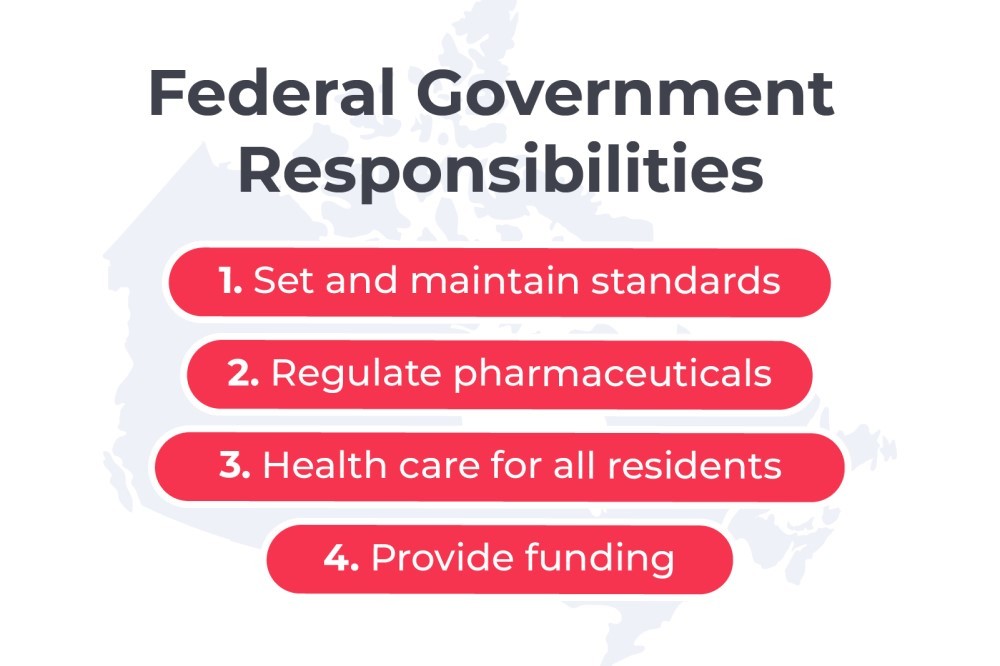
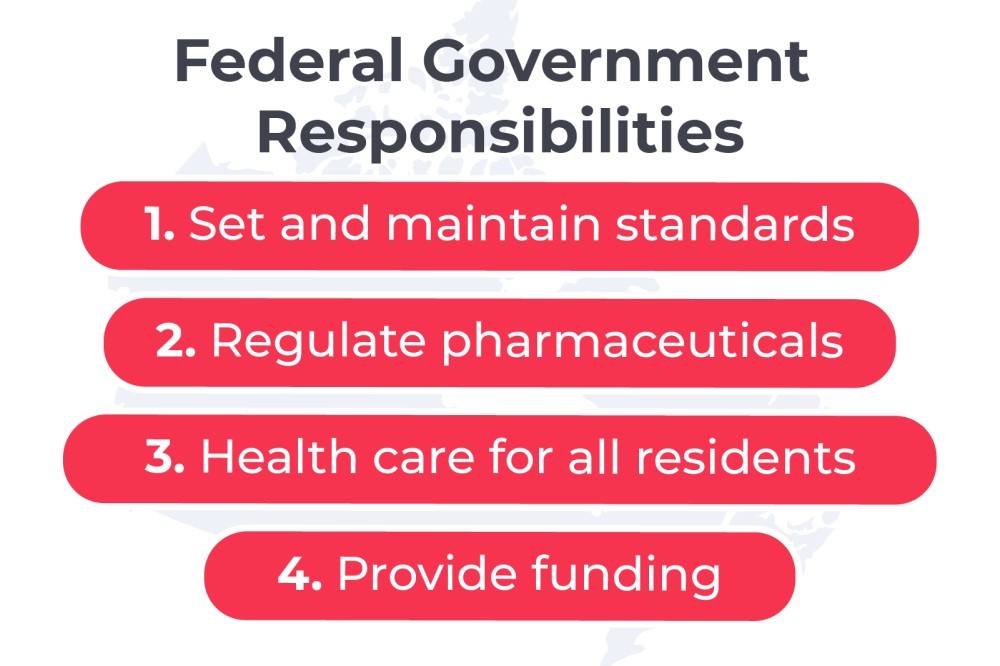
What Standards Must Health Care Insurance Plans Meet?
There are 5 major standards that all health care insurance plans must meet.
As mentioned, each province and territory has its own health insurance plan. All 13 of those plans must meet five requirements to ensure that they stack up to the mandates of the Canada Health Act (CHA). The five standards are as follows:
- All health insurance plans must be publicly administered and that cannot be outsourced to a for-profit firm.
- All health insurance plans must meet the requirements for comprehensiveness. That is, none can cover less than mandated by the CHA.
- All health plans must be universal within that province or territory and available to all residents.
- All health plans must offer portability. That is, patients should be able to move from provider to provider with ease.
- All health plans must offer the level of accessibility to medical care as described within the CHA, or higher.
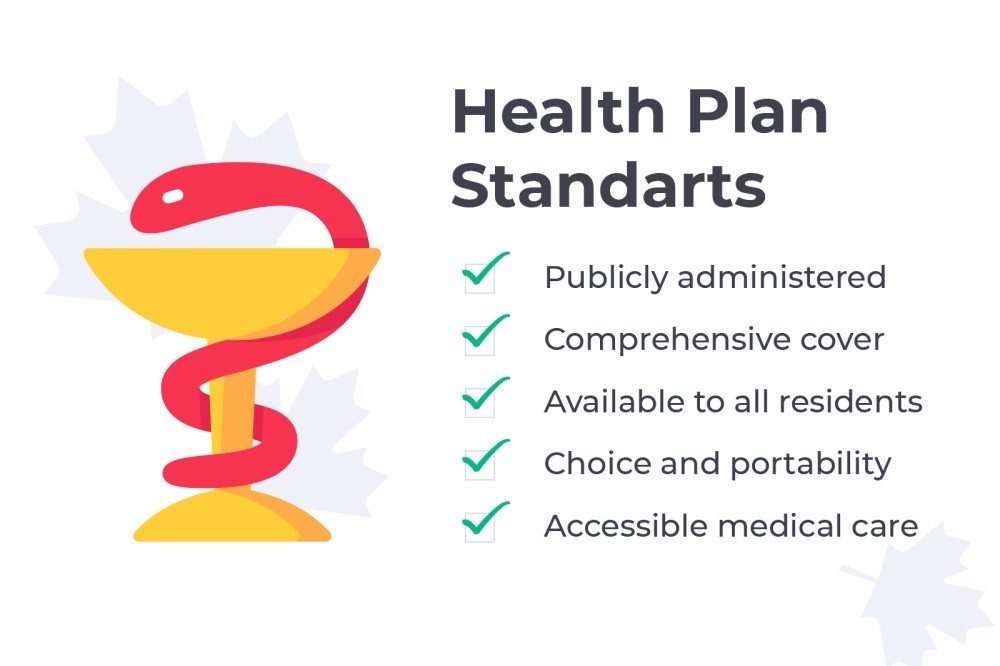
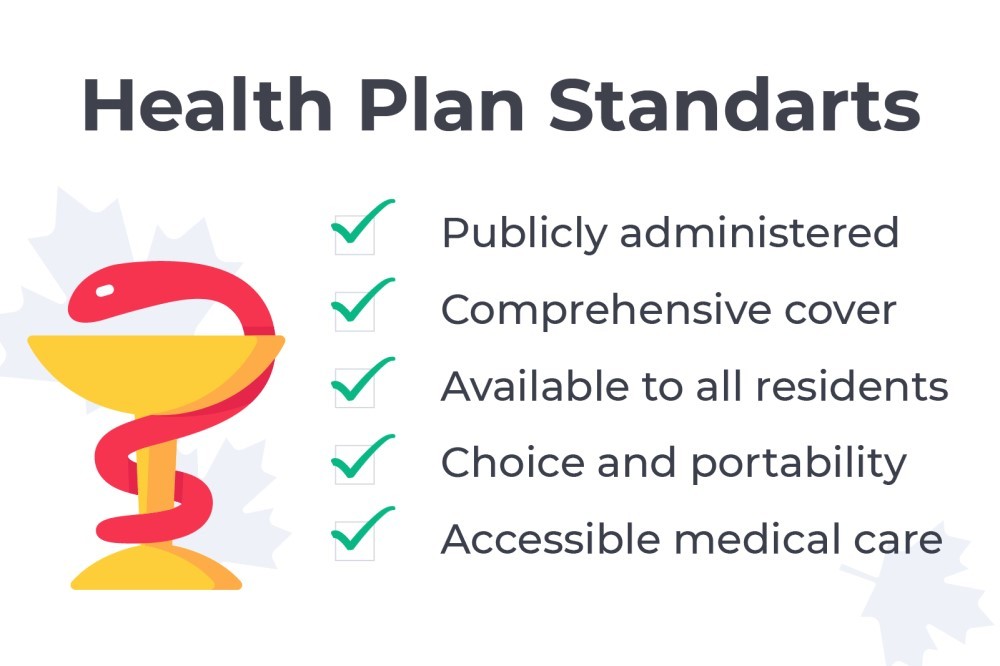
How Do Doctors in Canada Get Paid?
It is interesting to note that Canada relies on public funding of health care, but that care is delivered through private practices. Even hospitals are not state-run in the sense that an actual socialized medical program would be. So, how do doctors get paid? They do not receive a salary paid by the government. In fact, they are paid on a per-visit basis, the same way they are in the United States.


What Is Not Included with Medicare?
Canadian health care coverage is designed primarily to ensure that every Canadian citizen has access to “medically necessary and hospital physician services”. However, the CHA does not specify what is medically necessary and what is not. Each province/territory works with their health providers to determine that. In many cases, dental and vision health are not included with Medicare. Prescription drug coverage is also usually omitted.
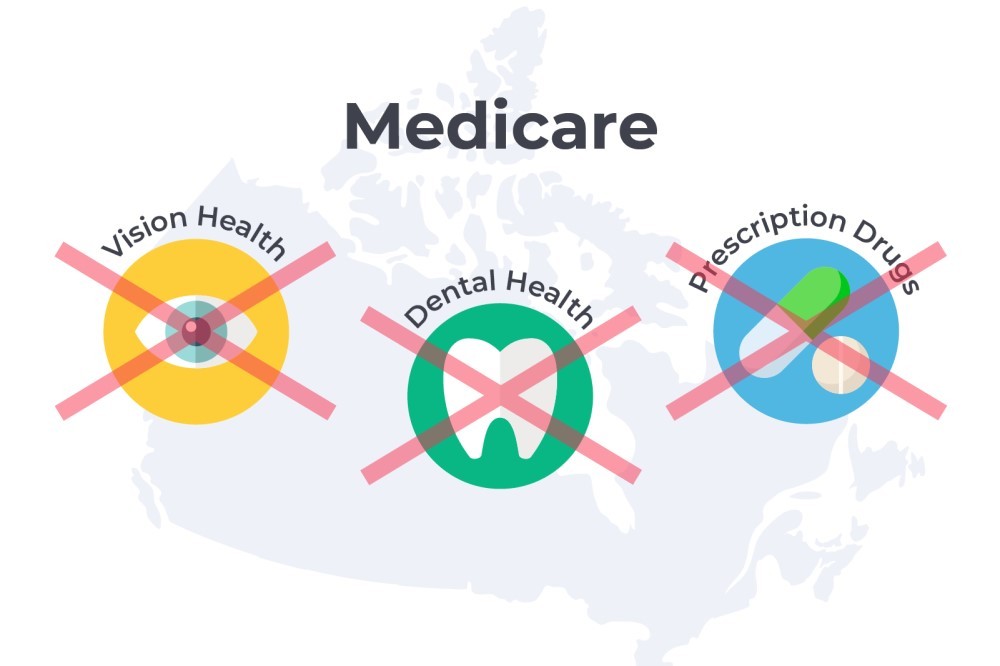
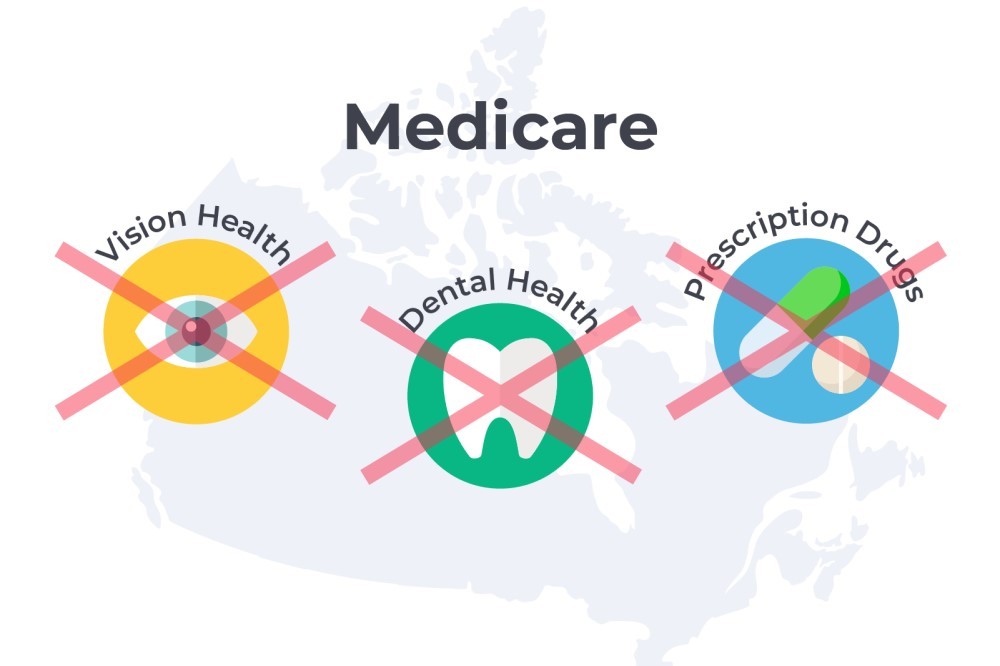
Vision and dental health are not covered by Medicare.
It should be noted that this is not true in all cases, as each territory/province can decide if they want to cover supplementary care and benefits. Because of this, approximately 67% of Canadians also have private health insurance to cover non-medically necessary services.
Of course, Medicare does not cover treatment costs for gambling addiction, but sometimes gambling addiction can be considered as a mental disease. In this case, treatment costs are partially covered.
What about Long Wait Times?
Yes, there can be long wait times for access to services. It should be noted, though, that these are not emergency situations. In most cases, the appointments with the longest wait times were for specialists being recommended by a primary care provider. Recent healthcare pressures have highlighted these challenges, though emergency and urgent care remain readily accessible.
Can You Chose Your Medical Provider?
Yes, in most instances, the Canadian health system does allow members to choose their own medical providers. However, if you need to see a specialist, that visit must be arranged through your primary care provider (similar to a referral in the US system).
Who Is Eligible for Coverage Under the Canadian Healthcare System?
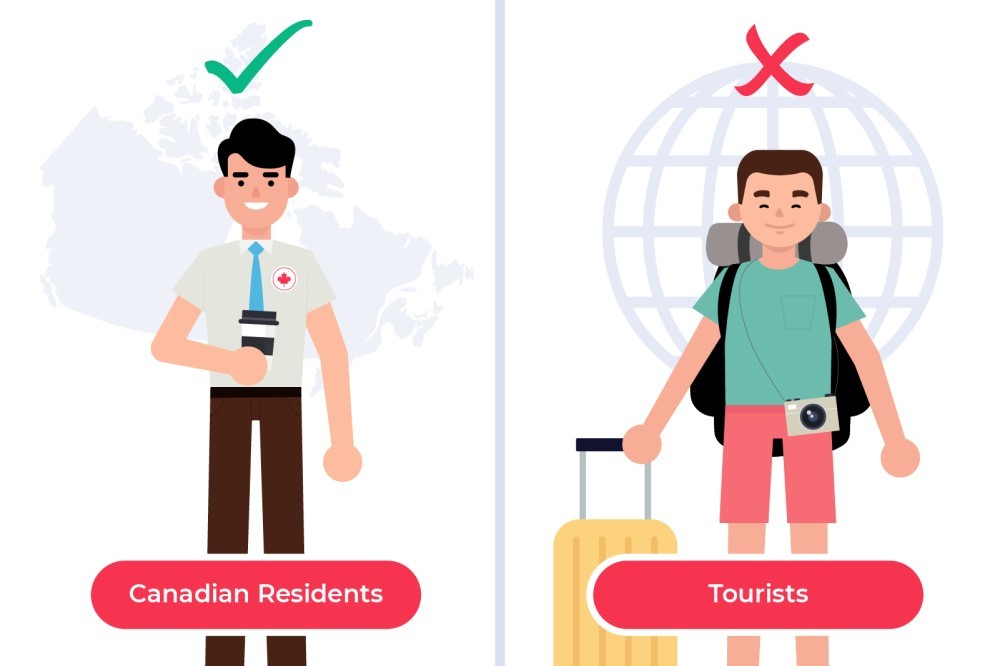
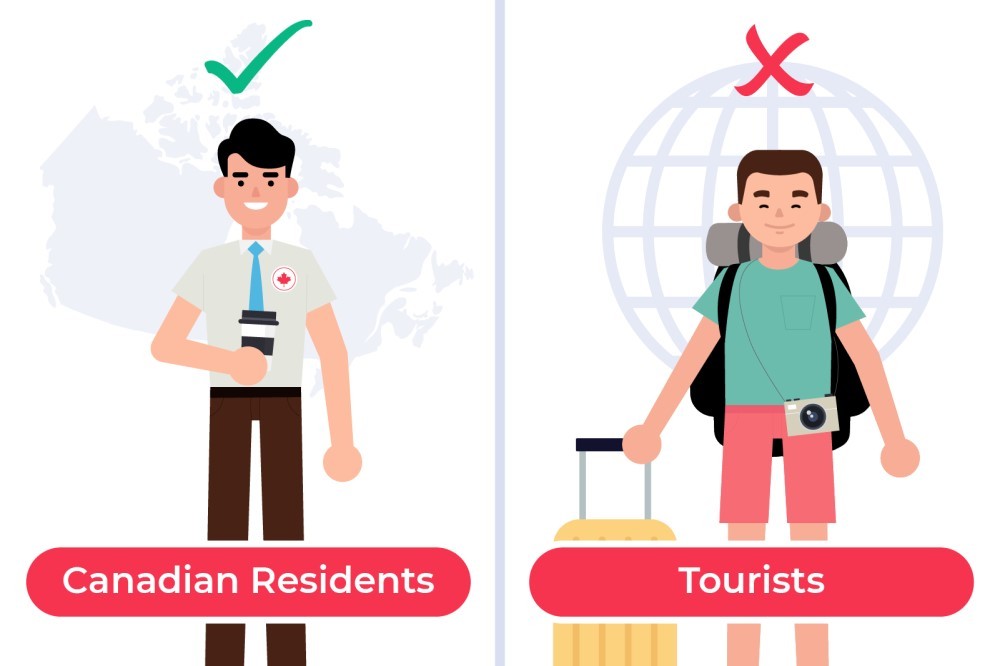
Only Canadian citizens and permanent residents are covered.
Is everyone eligible for coverage under the Canadian healthcare system? No, they are not. The program is only designed for Canadian citizens and those who have attained permanent resident status. Anyone traveling to Canada from another nation who does not meet those requirements will have to pay out of pocket for medical care. It should also be noted that the primary requirement for a Canadian to have coverage under this program is the duration of residency within the nation. So, expats who have been traveling abroad for long periods will not have coverage for some time, even though they may technically be Canadian citizens.

